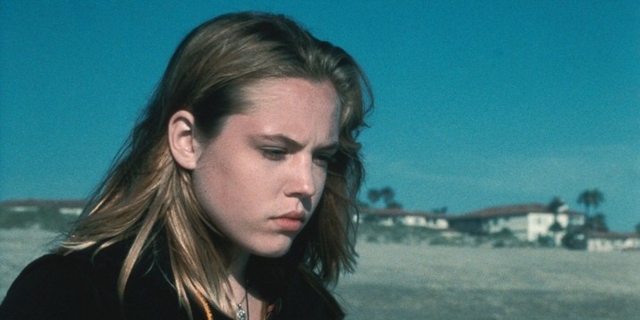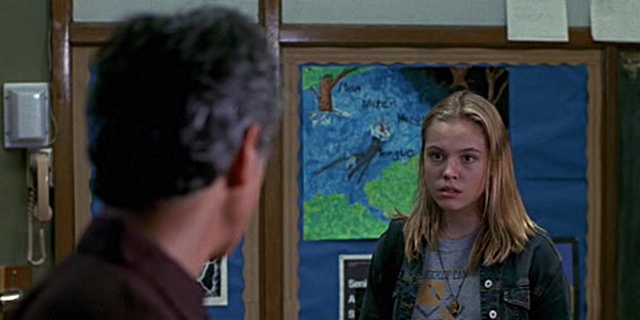
Being a film buff isn’t easy, so we people that watch many movies tend to be more or less organized about our watching habits – or at least act like it. We create list after list of movies we ‘have to watch’ and at the same time know that we will never truly reach the bottom. Which isn’t a bad thing. But sometimes, it’s nice to just watch something completely by chance – just let an algorithm of some sort decide your movie of the day. For example, do a random search at Netflix and watch the movie that pops up. Since I have to be organized about it at least a little, I will do a search for each color of the rainbow at Netflix every month. And in the end, maybe Kermit will write a song about it.
I never truly understood why we call it ‘the blues’ – isn’t it a bit unfair to associate a color with sadness? Even black is more than just the color of mourning. Is the sky actually that sad – is the sea, the European Flag, are hyperlinks? The only other meaning I know people have given to blue is that of elegance. So the question is: How sad is this month’s Netflix Rainbow movie Blue Car – and how elegant?
Talented 18-year old Megan (Agnes Bruckner) enters a poetry contest after her English teacher Mr. Auster (David Strathairn) encourages her to do so. She wins and is now able to attend the final contest in Florida. However, Megan is unable to cover the expenses, since her family can barely make it despite her single mother’s 12-hour shifts. While Megan tries to get the money through little thefts, her younger sister Lily is experiencing extreme mental problems and stops eating. Eventually, Megan makes it to Florida, where she realizes that her teacher is not the man he seems to be.
Blue Car is not a sad film – it is a devastating one. Rarely have I ever experienced such miserable 90 minutes. With almost every scene, the main character’s situation worsens and you want to either yell at her or cry for her. The setting is reminiscent of films like Fish Tank, with the difference of this being set in America. It’s the tall, grey buildings that house dozens of families and it’s the very realistically painted youth of the early 2000s (including piercings and *those* jeans). But it’s also the hopelessness with a tint of hope. Because even though this is one of the saddest films I have ever seen, it never truly depresses you to a degree where you just want nothing more than to turn it off (Requiem for a Dream, anyone?)
The film surprised me in being a much more feminist film than you would expect from seeing the poster or reading the synopsis. In fact, Mr. Auster is the only significant male character in the movie, while there is a strong focus on Megan, her mother and her sister. Furthermore, Mr. Auster’s wife (played by Frances Fisher) is a very nuanced, interesting side character who only appears in 1 1/2 scenes. All of these women have problems and are flawed – but they are never as flawed as the male characters. This may be a different kind of misogyny, but at this point in time, it is rather refreshing.
If there can be elegance in realism, Blue Car is certainly a most elegant film. Written and directed by Karen Moncrieff, the story starts out slow and gains tension with time. Although several extreme and brutal events happen in the course of the story, the film deals with them in an understated, almost subtle way . It helps that Agnes Bruckner portrays Megan in a very natural way – make-up free and all.
I’m glad Netflix is not only a heaven for tv show addicts and people that want to watch last seasons blockbusters, but also a source for these little independent films that we wouldn’t be able to see otherwise. Personally, I had never heard of this film and only watched it because of this feature so… randomness for the win!


